
We look back on the highlights of the April 2022 IMF - World Bank Spring Meetings in our final recap. We share key takeaways of the IMF flagship reports, high-level seminars and policy discussions, the outcome of the IMFC meeting, and more.
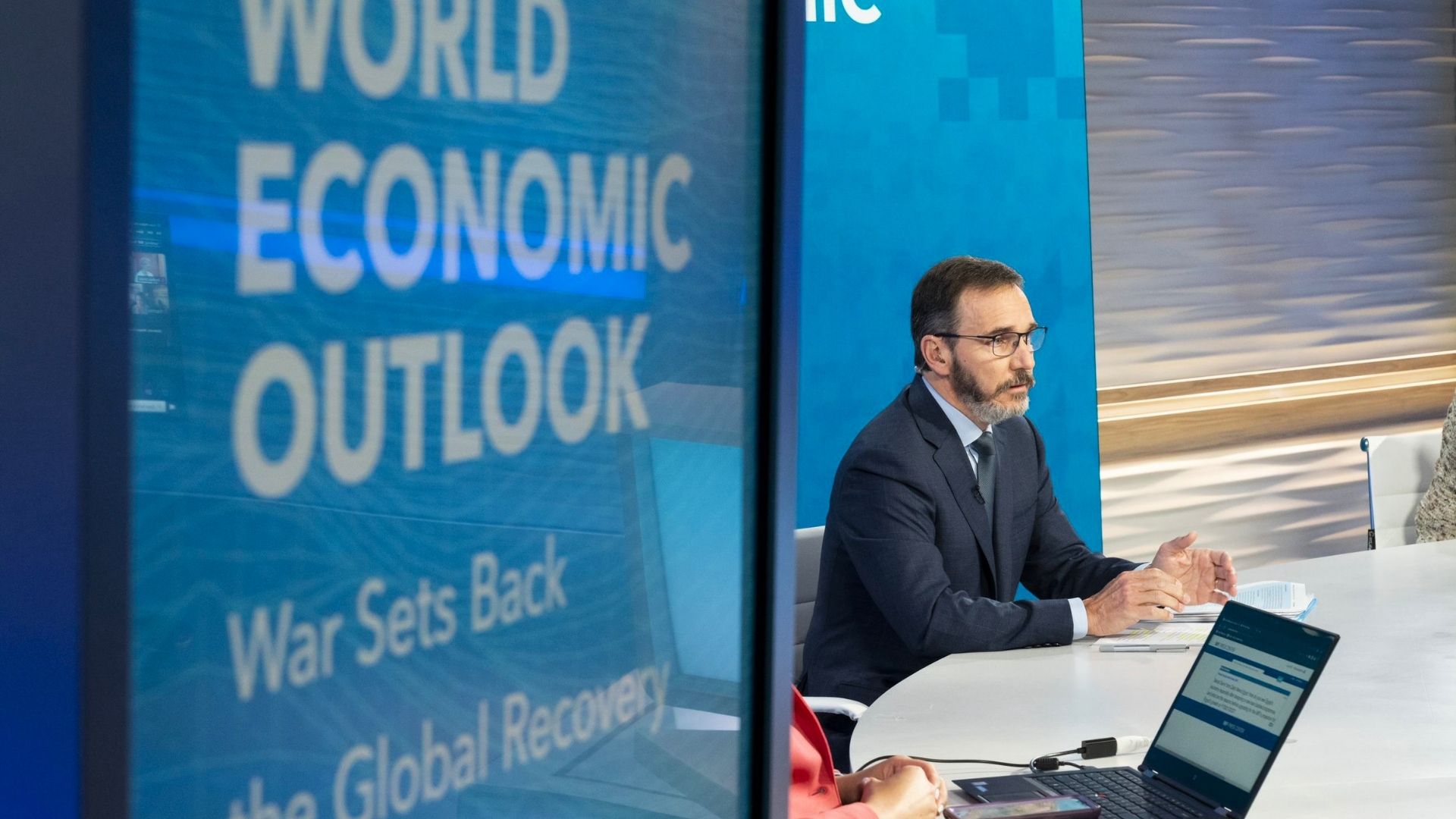
In this week’s World Economic Outlook, the IMF revised down its projection for global growth to 3.6 percent in both 2022 and 2023, reflecting the direct impact of the war and sanctions. The war risks more permanent fragmentation of the world economy into geopolitical blocs, with their own reserve currencies and systems for cross-border payment, IMF's chief economist Pierre-Olivier Gourinchas said, in what amounts to a serious challenge to the rules-based framework that has underpinned international and economic relations for the past 75 years.
Learn more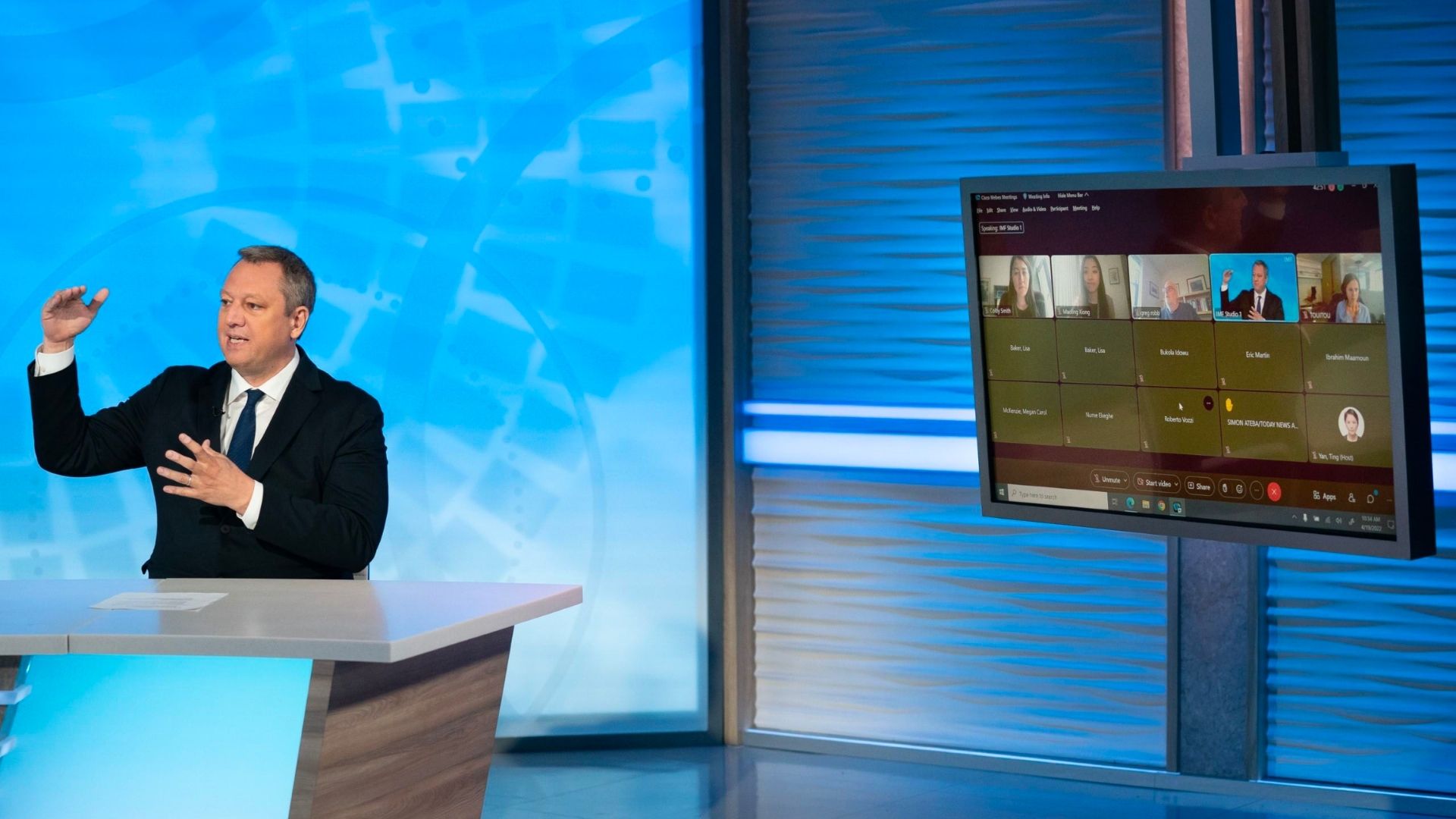
Tobias Adrian, Director of IMF’s Monetary and Capital Markets Department Inflation, singled out inflation as the single most important challenge of our time and said central banks should raise interest rates aggressively to bring it back down to target. He was speaking at the launch of the latest Global Financial Stability Report, which warned that financial markets would be tested by the war in Ukraine.
Learn more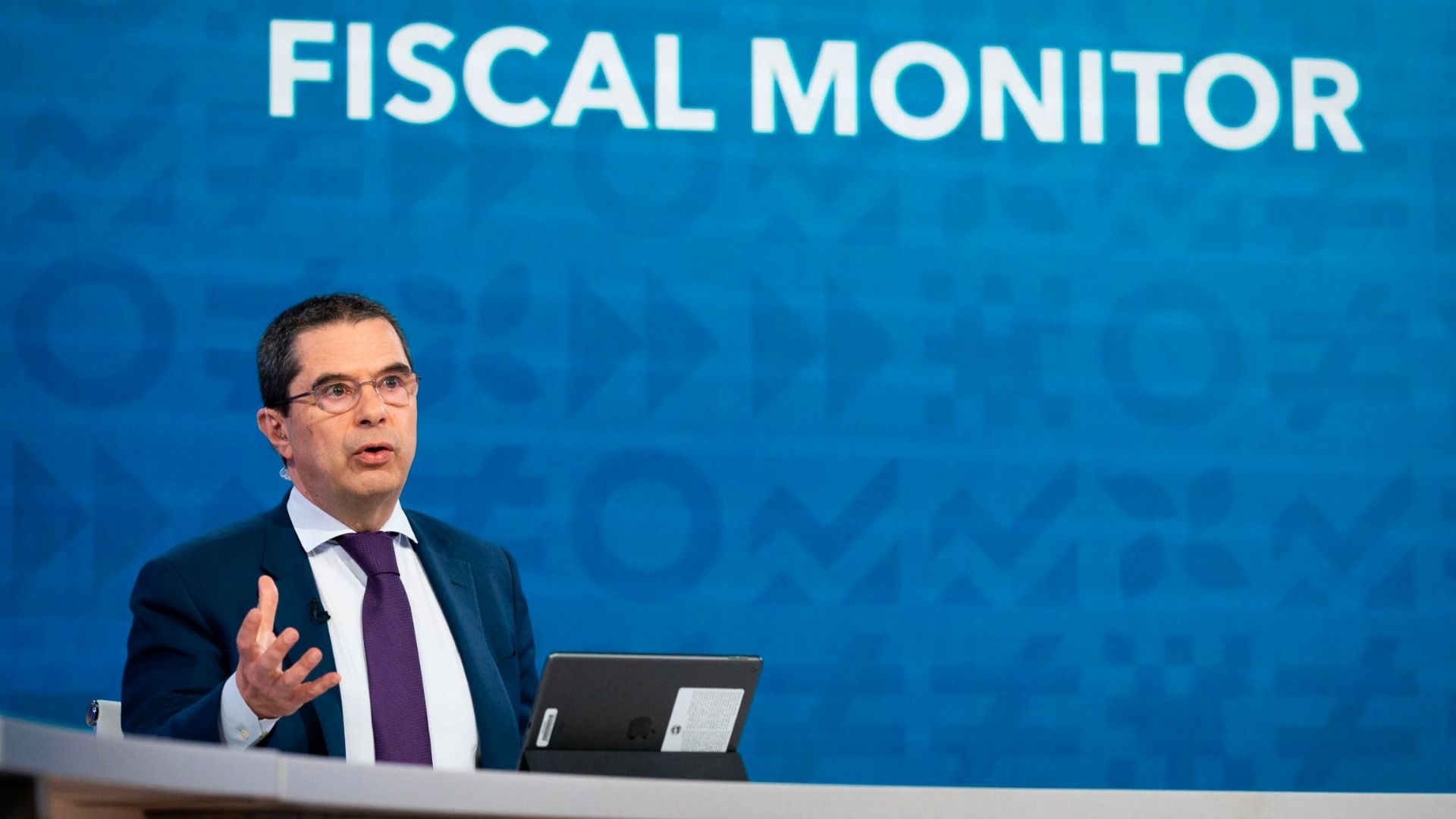
Launching the Fiscal Monitor on Wednesday, the IMF’s Vitor Gaspar said record debts and rising borrowing costs meant low-income countries have very limited fiscal space to protect their populations from spiking food prices. Food prices are particularly important for the poorest countries and people, accounting for up to 60 percent of household budgets in some developing economies, he told a press briefing.
Learn more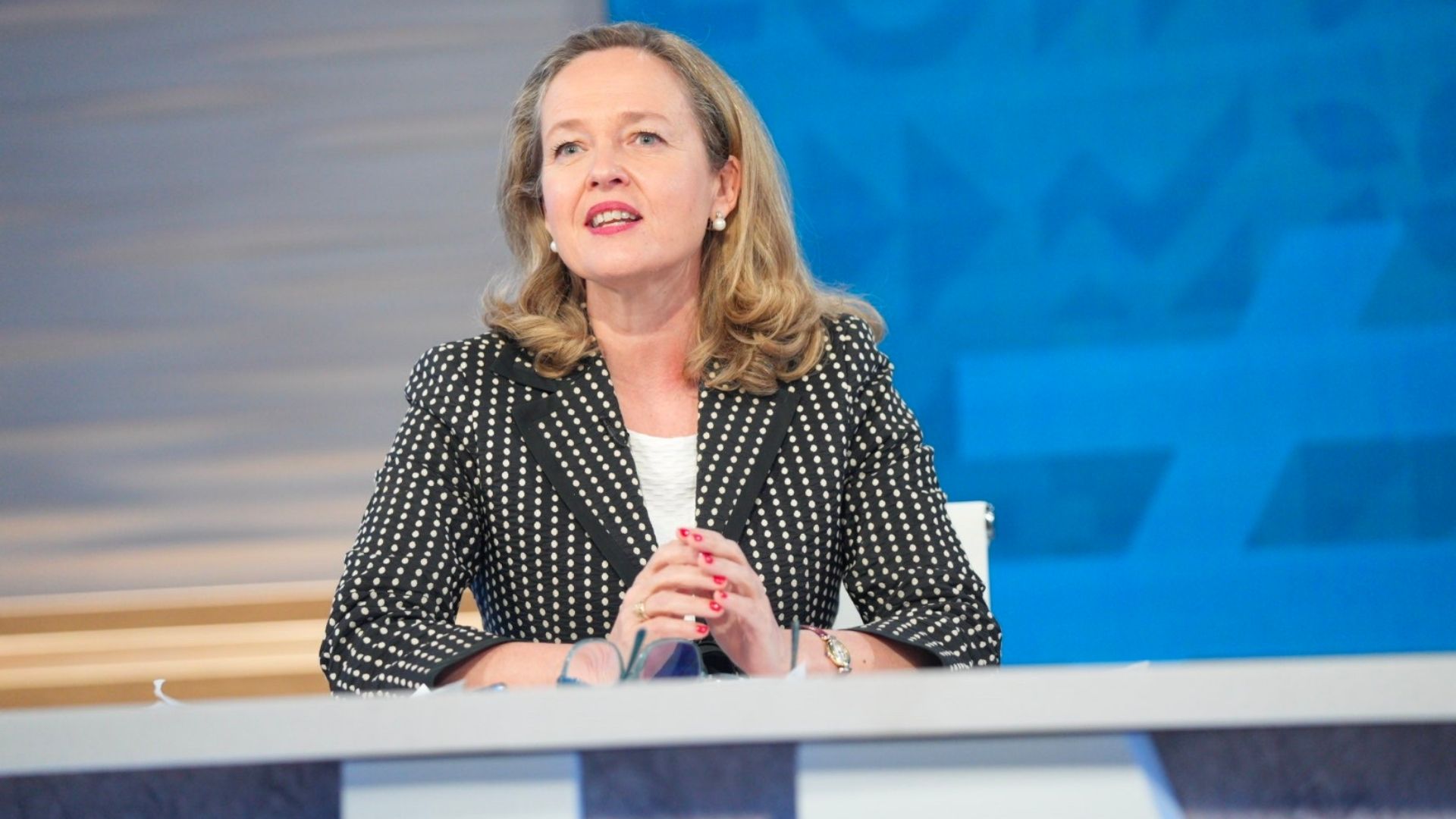
Nadia Calviño, Spain’s economy minister and current chair of the IMF’s International Monetary and Financial Committee, said on Thursday there was agreement among members on all elements related to the important work of the institution. At a press briefing after a meeting of the IMFC, Calviño said this extended to the managing director’s Global Policy Agenda, the work of the institution and the critical policies that members will need to take, and close engagement and dialogue among all countries on the substantive work of the institution and these policies. “Unanimity was there on the substantive issues.”
In a Chair’s Statement, the IMFC called for a speedy resolution of the war in Ukraine through diplomatic channels, including political dialogue, negotiations, mediation and other peaceful means, and for greater international cooperation and strengthened multilateralism to prevent fragmentation and safeguard global economic integration.
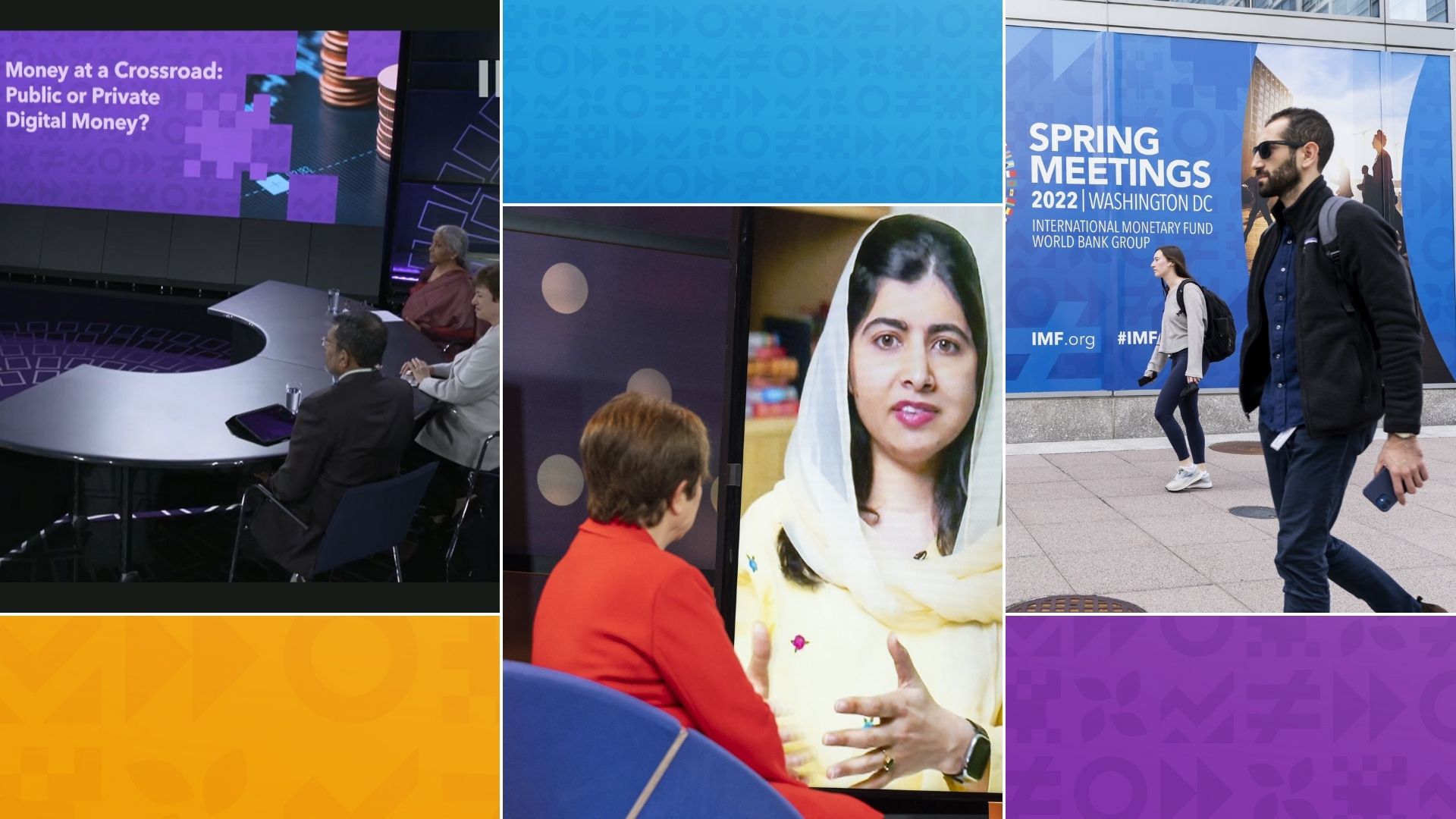
We spotlight a high-level panel discussion on digital money, a conversation on girls' education between Malala Yousafzai and IMF head Kristalina Georgieva, how record private debt will slow the global economic recovery, the risks facing emerging-market banks from their holdings of government debt, and much more.
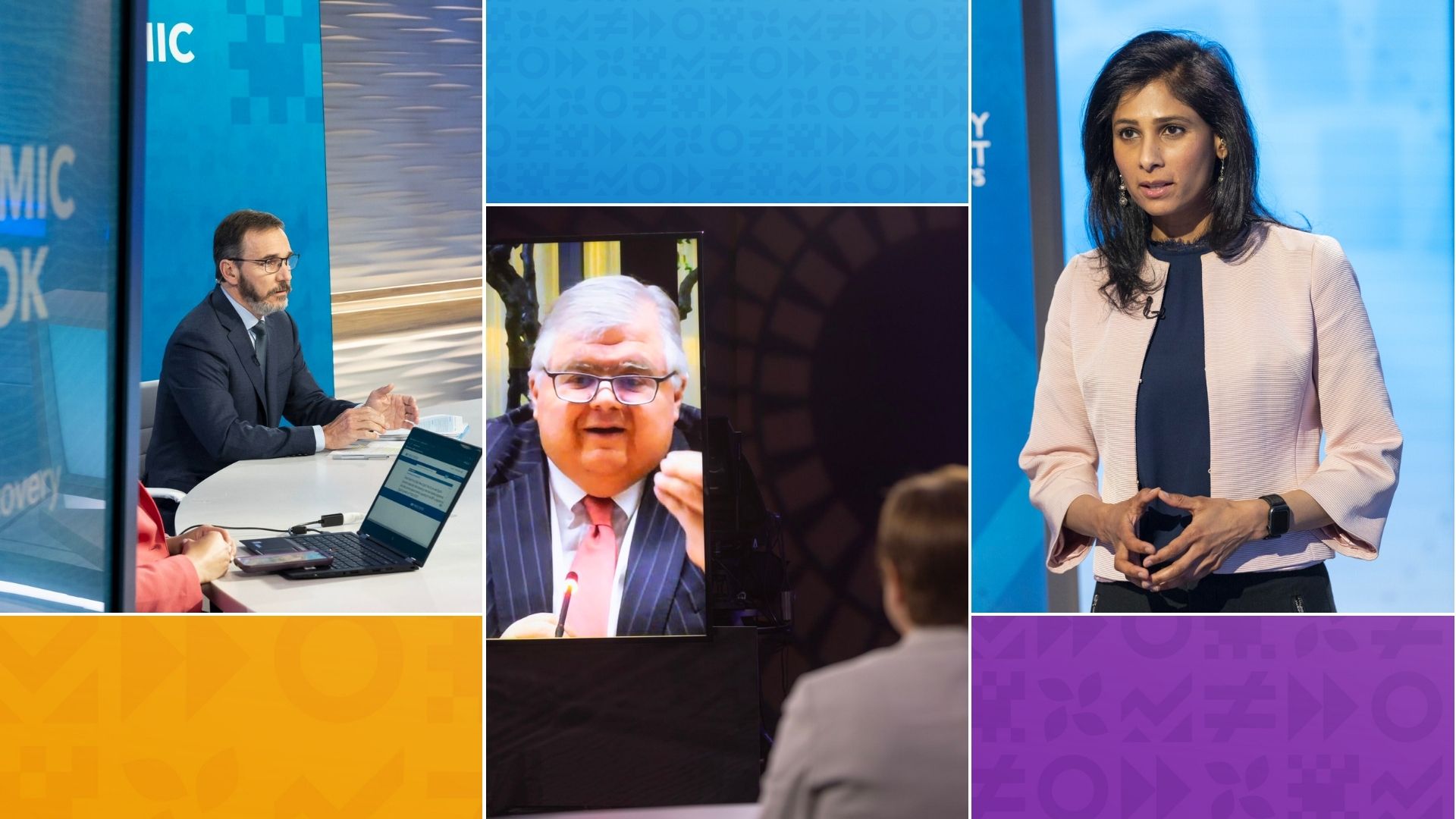
We focus on the challenges facing the global economy as the IMF announced cuts to the global growth outlook. We also take a look at the risks posed by inflation to financial stability, how countries can benefit from digitalization in a sustainable way, and much more.
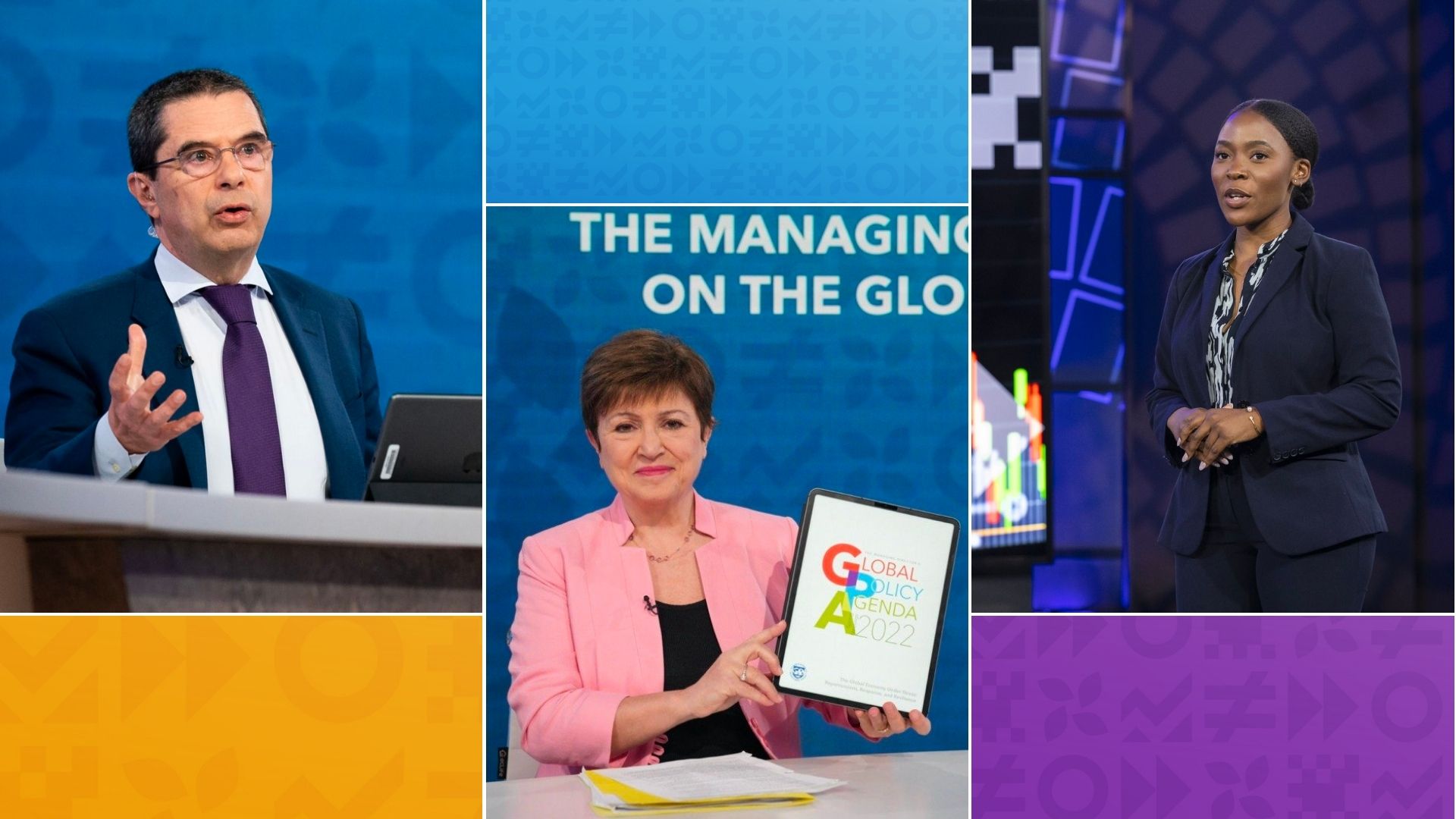
We spotlight the risk of food shortages and social unrest in our member countries, the Global Policy Agenda to respond to crises and strengthen resilience, the challenges facing fragile and conflict states, and much more.
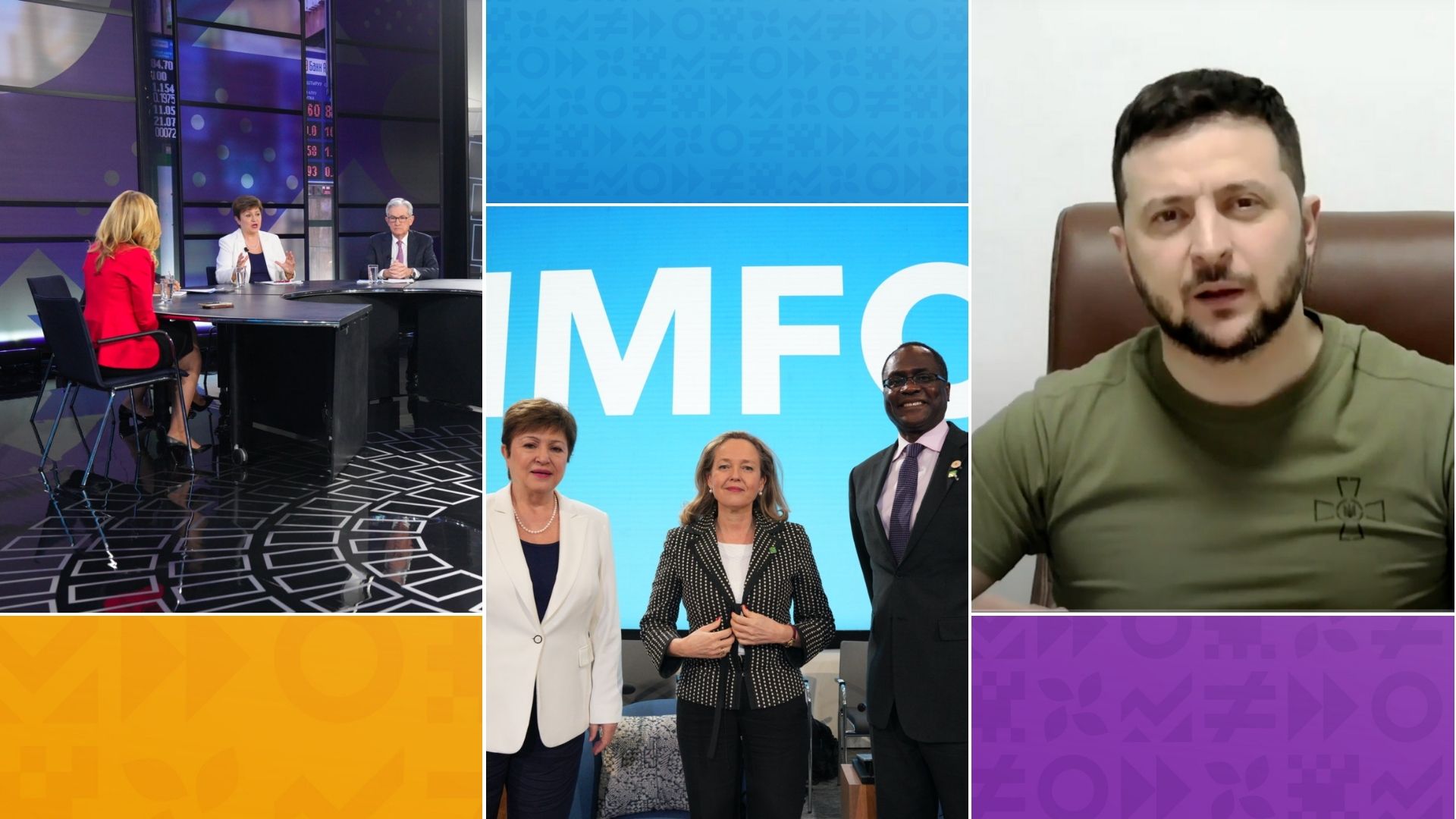
We focus on new commitments to the Resilience and Sustainability Trust at the International Monetary and Financial Committee meeting, a high-level debate on the global economy, Ukraine's financing and reconstruction needs, and much more.
Twelve countries have pledged almost $40 billion to support the Resilience and Sustainability Trust (RST) to overcome climate change and other longer-term structural challenges.
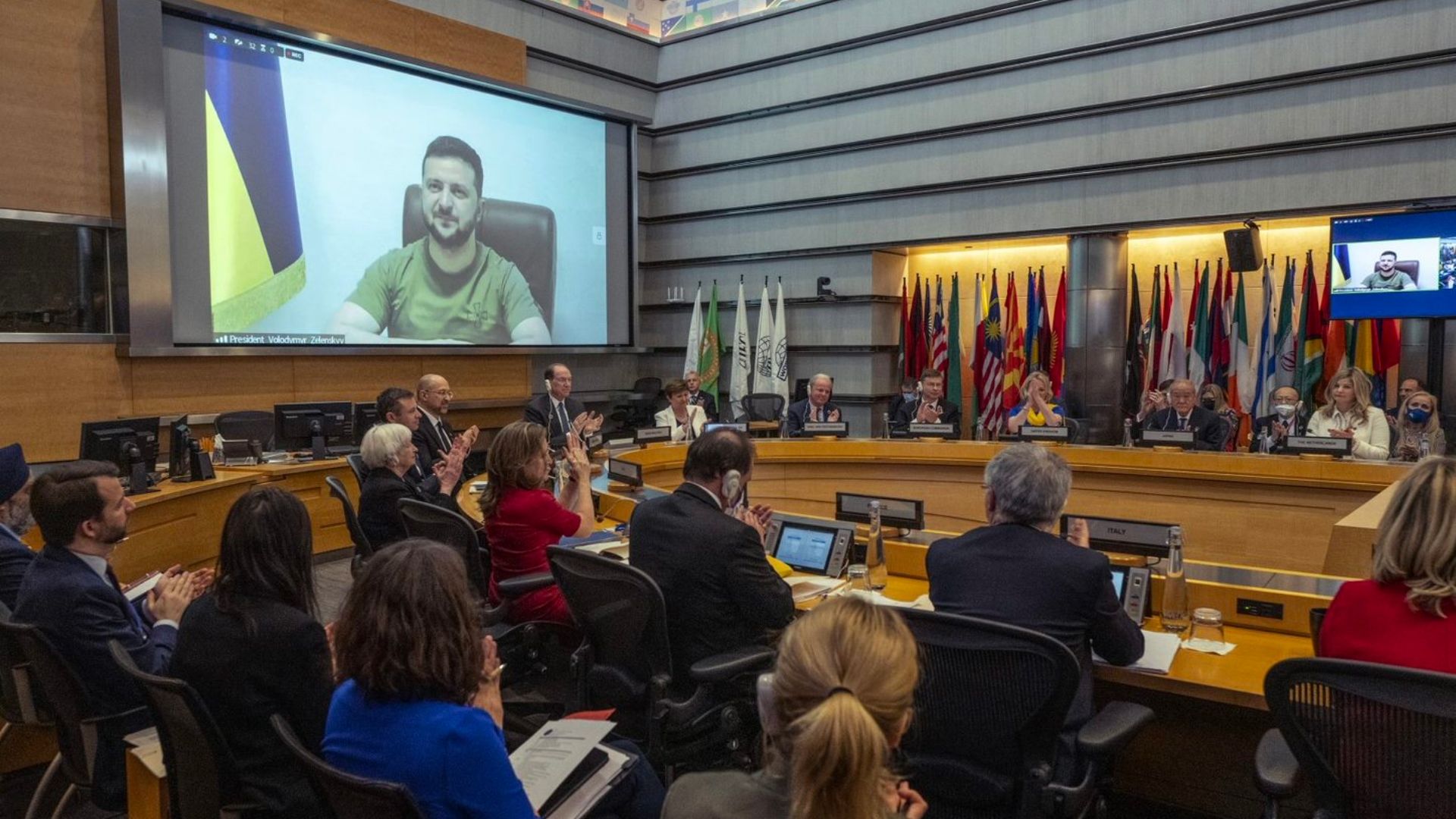
Pressure on Ukraine’s budget will increase for as long as the war continues, and the country requires more external assistance in the form of grants and concessional funding to keep the economy afloat, the IMF’s Kristalina Georgieva said on Thursday. Speaking alongside Ukraine’s Prime Minister Denys Shmyhal and World Bank President David Malpass at a discussion on support for the war-torn country, Georgieva said foreign reserves would sink as restrictions on imports are relaxed and damage inflicted on key infrastructure reduces exports, especially of agricultural goods. Ukrainian President Volodymyr Zelensky, who joined the discussion via video link from Kyiv, said Russia’s invasion had inflicted terrible destruction and blockades of Black Sea ports had led to a collapse in agricultural exports with far-reaching consequences for the world economy. "To stop the war now...is the only secure way to stop a food crisis.”
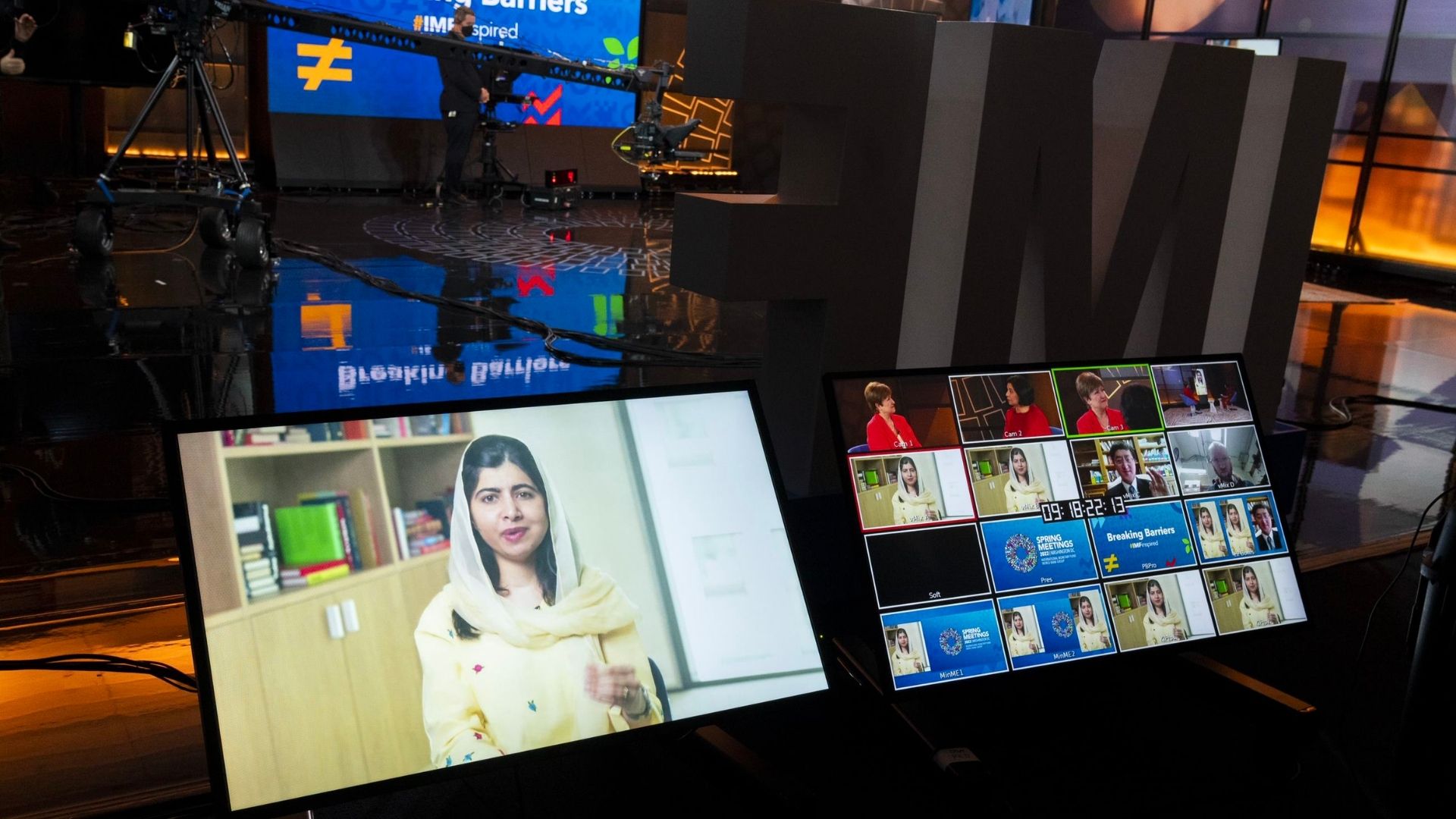
Malala Yousafzai on Monday called on world leaders to increase financing for global education, especially girls’ education. The Nobel Peace Prize Laureate said donor countries should give at least 0.7% of their gross domestic product in foreign aid, including for education for marginalized groups, and that debt relief could help developing countries to fund learning. “We know that developing countries have huge debts that they have to pay back and most of them then have to sacrifice things like education and health,” Yousafzai said in a conversation with IMF Managing Director Kristalina Georgieva.
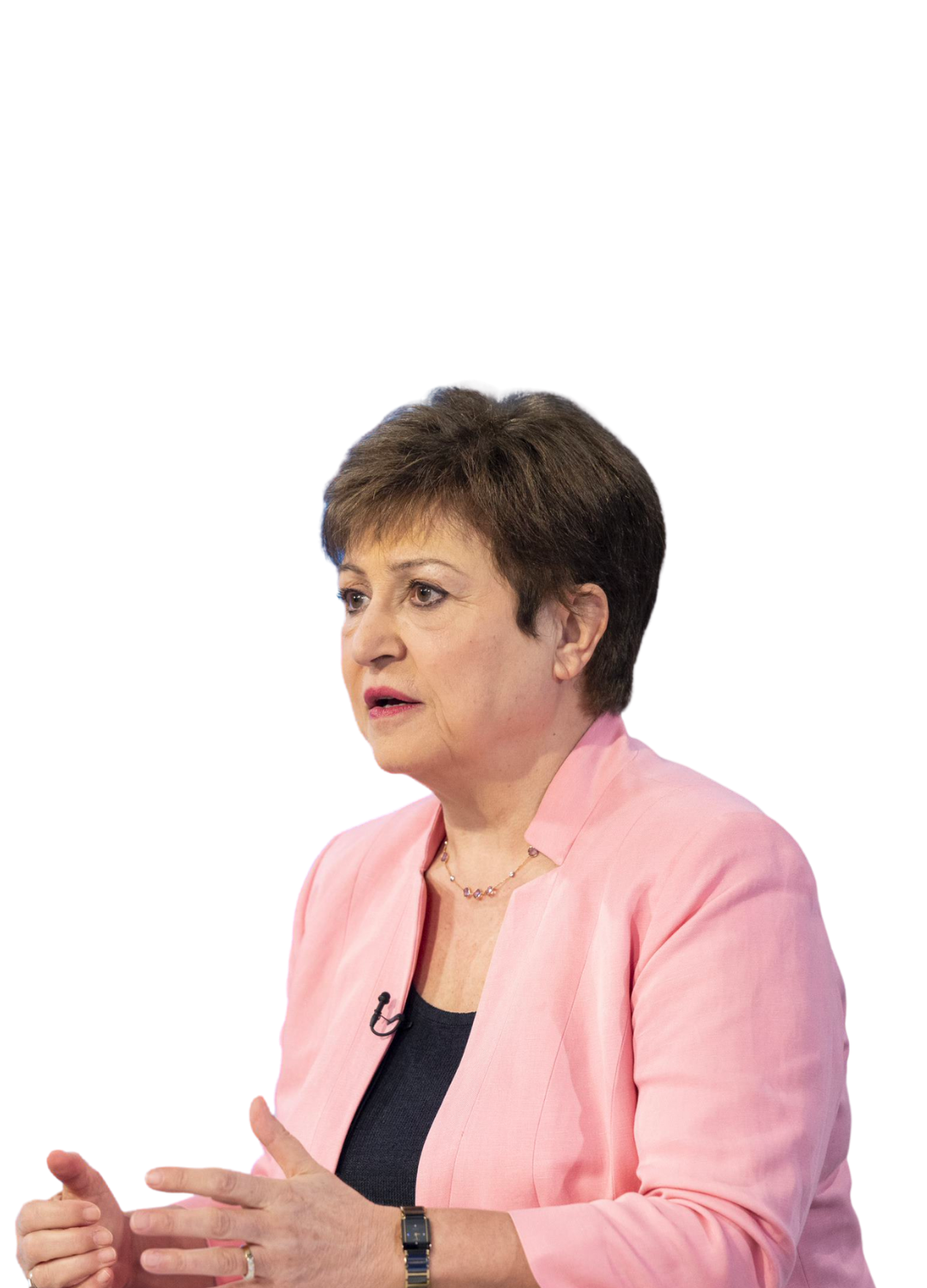
In a world where war in Europe creates hunger in Africa; where a pandemic can circle the globe in days and reverberate for years; where emissions anywhere mean rising sea levels everywhere — the threat to our collective prosperity from a breakdown in global cooperation cannot be overstated.
KRISTALINA GEORGIEVA, MANAGING DIRECTOR, IMF
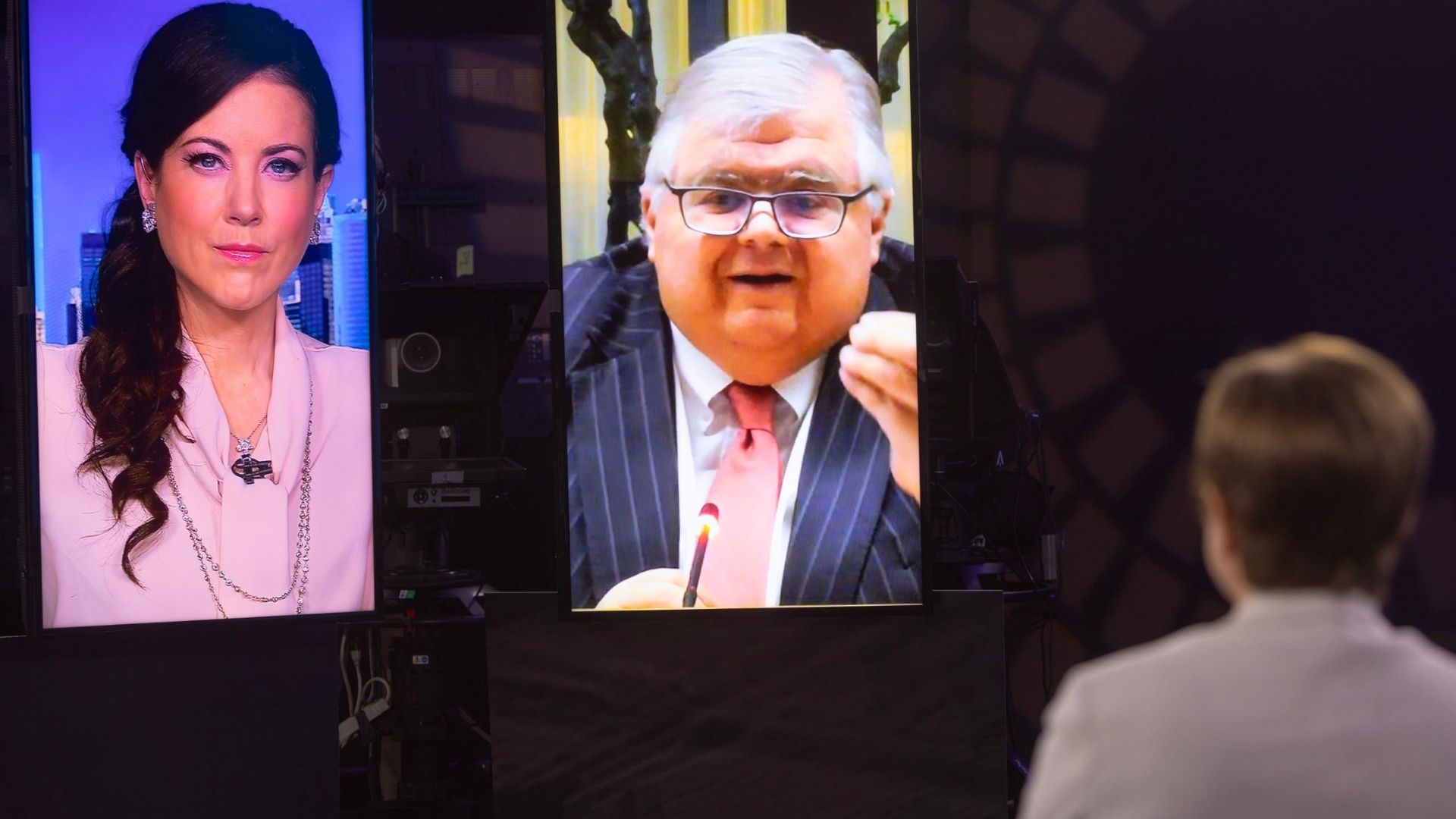
Agustín Carstens, General Manager of the Bank for International Settlements, joined Kristalina Georgieva for a discussion moderated by CNN International’s Julia Chatterly on how countries can reap the benefits of digitalization in a sustainable fashion. Georgieva said that crypto is a growing risk because of the size and speed with which crypto assets are expanding. Since the Russian invasion of Ukraine, crypto assets have expanded by 9%. She further emphasized the need to find a policy approach that is proportionate to the size and risk they represent.
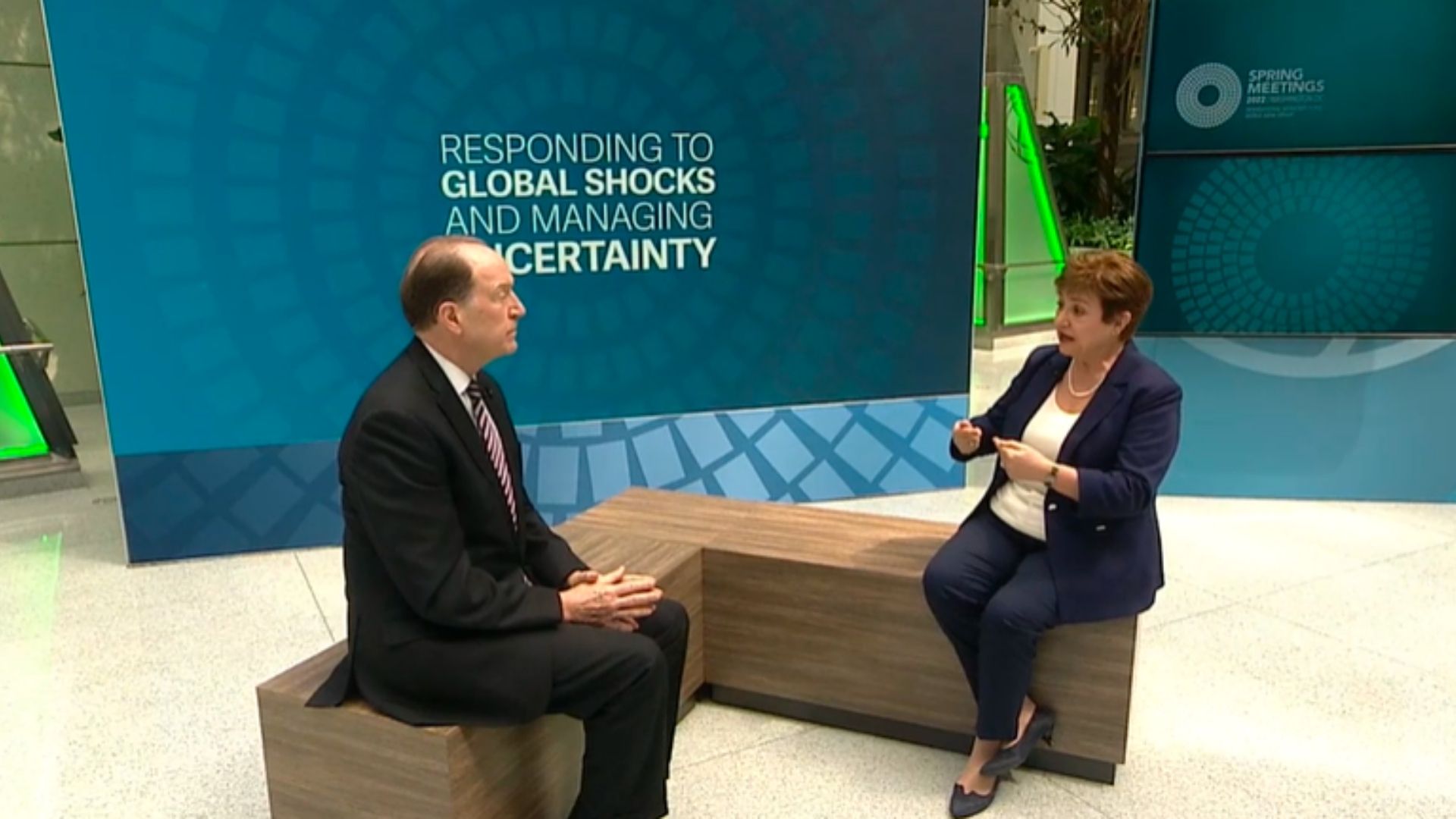
The war in Ukraine is a serious setback for the world economy that is impacting countries near and far, IMF Managing Director Kristalina Georgieva said in a wide-ranging conversation with World Bank Group President David Malpass. Georgieva said that a speed-up in inflation, driven by supply-chain interruptions, notably in China, but also by higher prices for energy, food, and metals was undermining recovery around the world. “What is very troubling is this negative impact of the war goes to so many places,” she said on the same day that the Fund announced steep downgrades to its global outlook. “Spillovers are more painful for those that were further behind in the recovery.”
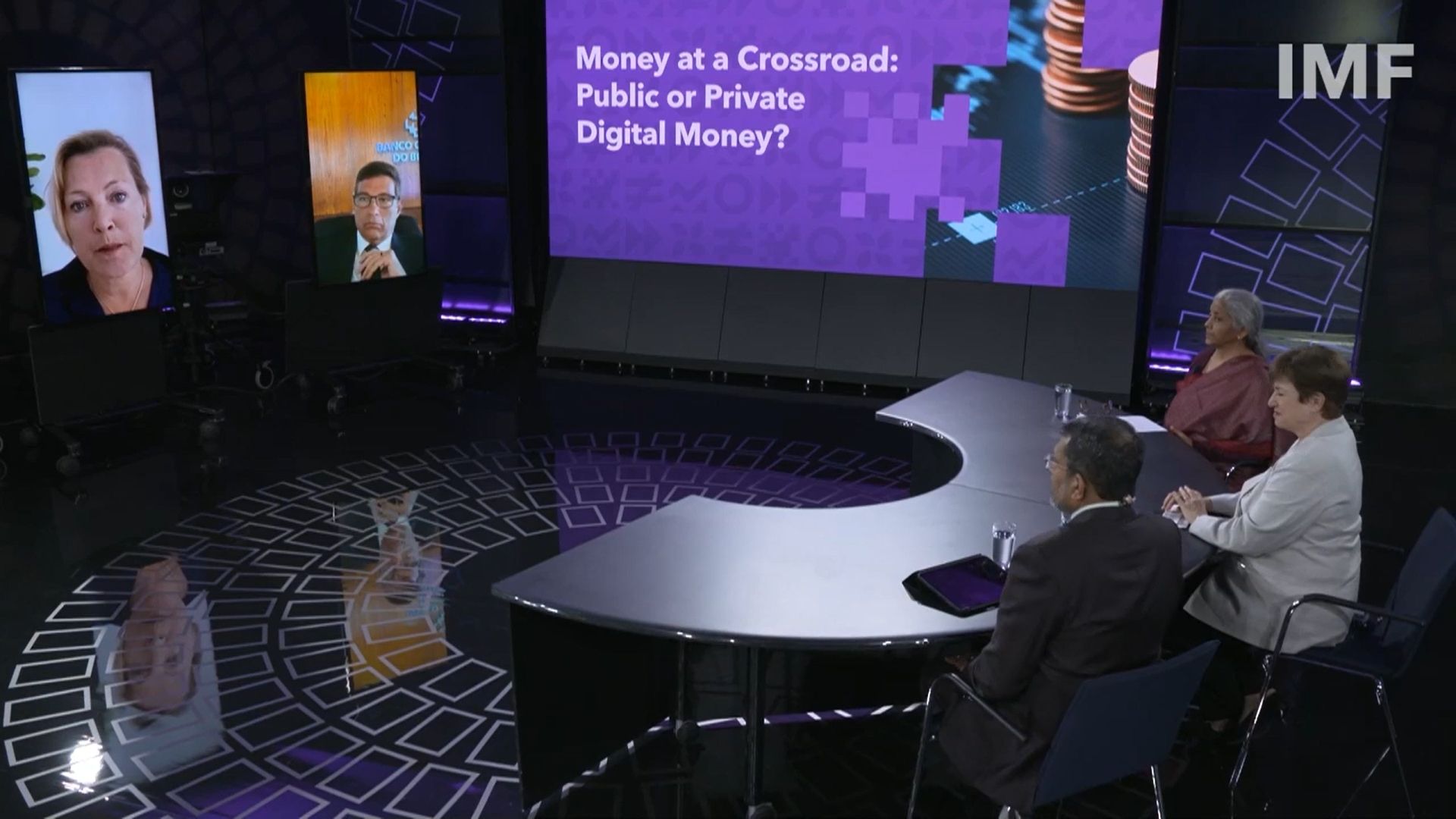
Roberto Campos Neto, President of the Central Bank of Brazil, Ravi Menon, Managing Director of the Monetary Authority of Singapore, and India’s Minister of Finance Nirmala Sitharaman joined Kristalina Georgieva for a discussion of digital money moderated by Gillian Tett of the Financial Times. Georgieva said the IMF is expanding its work on digital money in several areas, including striking the right balance in international regulation and the risks to the monetary sovereignty of smaller nations. "Disruptive is good but destructive is bad," she said.
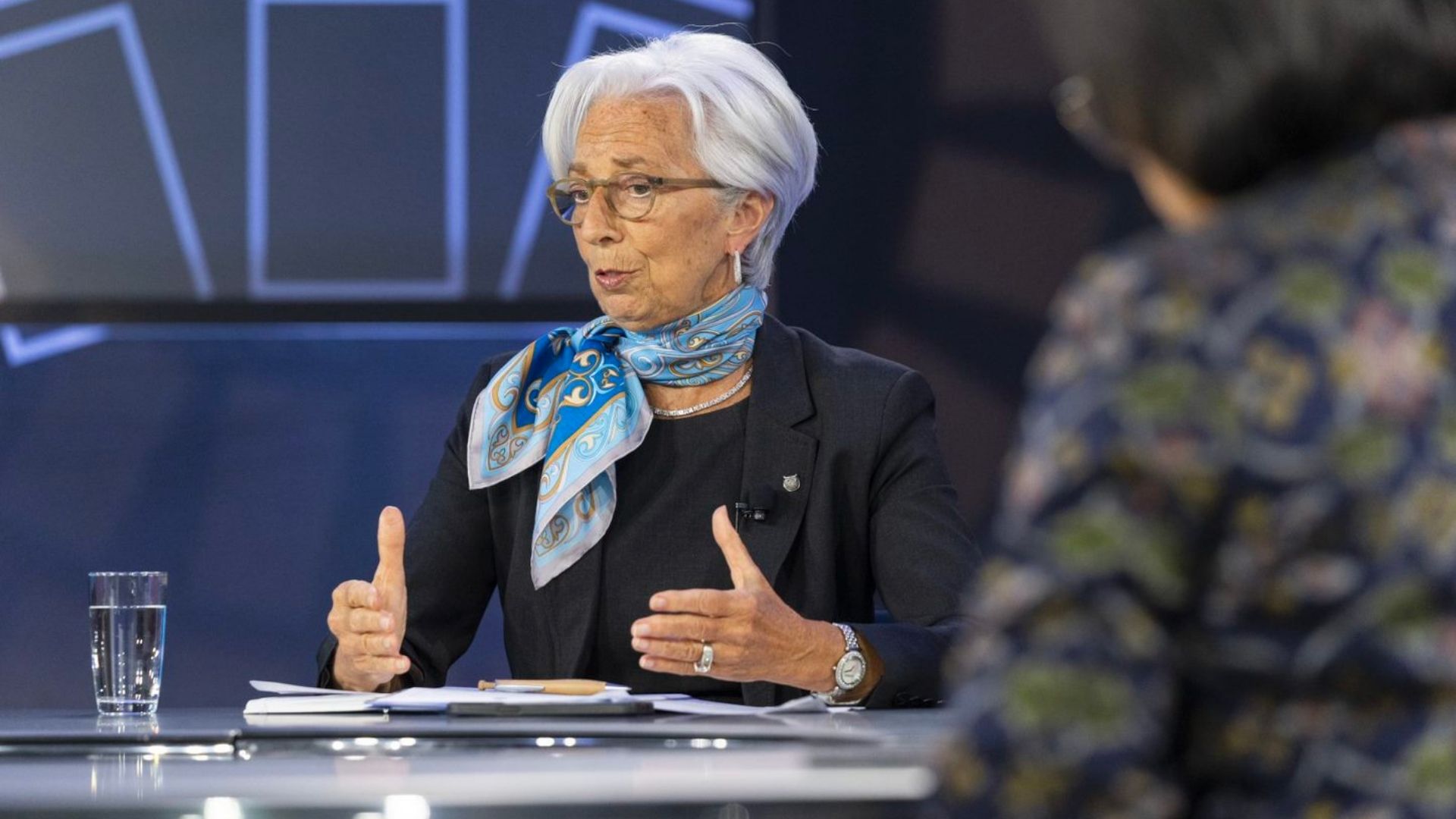
IMF Managing Director Kristalina Georgieva, European Central Bank President Christine Lagarde, US Federal Reserve Chair Jerome Powell, Indonesia’s Minister of Finance Sri Mulyani Indrawati, and Prime Minister of Barbados Mia Mottley discussed the impact of the war in Ukraine and other challenges in a debate on Thursday. According to Georgieva, “We live in a more shock-prone world” and need to be more agile and build more resilience. She further highlighted the challenge that emerging markets and developing economies face, with growth projections that are 6 percent below their pre-pandemic trend in 2026—meaning that they face a delay of 2 or more years in their recoveries. The issue for leaders is to find policies that can deal with short-term challenges without jeopardizing longer term sustainable growth, she said.

IMF staff prepares the room for the IMFC meeting.

Ahead of the debate on the Global Economy, Christine Lagarde greets Gerry Rice, director of Communications at the IMF.
Cutting-edge research and analysis of economic, finance, development, and policy issues shaping the global economy.